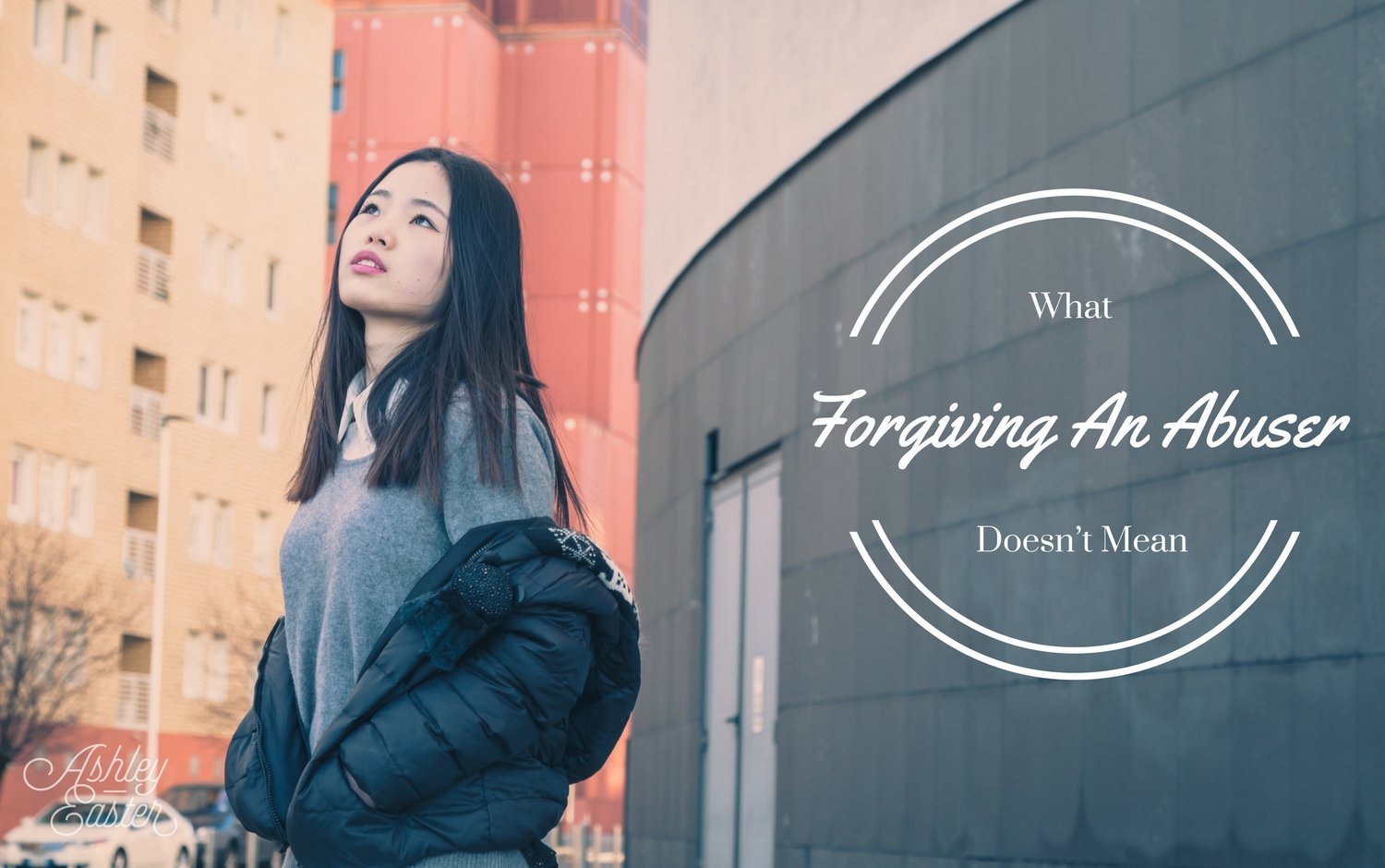What Forgiving An Abuser Doesn’t Mean
How many times have you heard it?
“You need to forgive your abuser”... “They said they were sorry, why have you cut them out of your life?”... “Jesus would want you to reconcile with the abuser”... “you should be over this by now, why aren’t you forgiving?”.
It seems the pressure placed on victims to forgive abusers is stronger than the pressure on abusers to confess, repent, and respect the boundaries of the person they victimized.
There are many misconceptions about forgiveness, and it seems that all of them are thrown carelessly on the shoulders of the abused.
In this post I hope to take that weight off of your shoulders by crushing 10 myths about forgiving abusers.
1. Forgiveness Does Not Mean the Abuser Must Be Involved
Sometimes the abuser does not apologize, sometimes the abuser is no longer living, and sometimes it is not healthy to have contact with the abuser. Even if the abuser is truly sorry and openly repents, forgiveness is about your healing. It can happen with or without them being involved.
2. Forgiveness Does Not Mean Reconciliation
Forgiveness and reconciliation are two completely different things. You can forgive someone and also choose not to have a relationship with them.
3. Forgiveness Does Not Mean Lack of Boundaries
Even after you forgive, and even if you choose to reconcile, you still have a right to enforce boundaries. Boundaries are like protective fences that say “you may only come this far in our relationship,” or “I will only accept certain types of behavior.” Boundaries are necessary for your safety, privacy, and comfortability.
4. Forgiveness Does Not Mean Quickly Moving On
Forgiveness is a journey, and depending on the offense it may take years to fully heal and forgive. Many times the abused person will have to go through the stages of grief, intense counseling, and a lengthy period of processing. In addition, the forgiveness journey isn’t a straight road. Sometimes it is an uphill climb and it’s not uncommon to have both progression and regression during the process.
5. Forgiveness Does Not Mean Excusing or Overlooking the Wrong
The abuse was bad, and there is nothing that can be done to change that fact. Trying to pretend it’s all okay is intellectually dishonest and ultimately more damaging.
6. Forgiveness Does Not Mean Forgetting
I love what Christine Caine says about this: “the blood of Jesus doesn’t give you amnesia.” Forgiveness doesn’t cause you to forget what happened, and that’s okay.
7. Forgiveness Does Not Mean You Can’t Talk About the Experience
This is your story. This is your life. Don’t ever let anyone silence or take away your narrative. You can forgive someone and still tell the truth about what happened. Sometimes that is what will bring you the most healing and the best chance of forgiveness.
8. Forgiveness Does Not Mean There Will Not Be Consequences
Trust is not required to forgive. If someone has broken your trust, only you get to decide if it is safe to rebuild that trust. If someone is abusive, they should expect to experience the consequences for their actions, such as loss of trust, exposure for their wrong doing, legal action, job loss, relational repercussions, etc.
9. Forgiveness Does Not Mean You Stop Keeping Track of Toxic Patterns
Some abusers will guilt you for keeping track of their repetitive abusive behavior, expecting that your forgiveness will erase past faults and give them a clean slate. That is not the way it works. You can both forgive and document patterns of abuse. Doing so will help you to make safe choices for yourself.
10. Forgiveness Does Not Mean You Should Not Warn Others
If the abuser is in a position to hurt others, forgiveness doesn’t stop you from warning people that need to know about the abusive actions. In some cases it is actually your duty to warn others or report to law enforcement.
For me, forgiveness is about healing, processing, and accepting the reality of what happened. It’s about getting to a point where it no longer consumes your thoughts or ability to thrive. It has nothing to do with the abuser, and everything to do with your personal health. Forgiveness is a process, not a single moment in time.
It is important to know that someone who is truly sorry for what they have done to you will respect your right to choose how you relate with them in the future. They will willingly accept your boundaries, the consequences, and the repercussions for their actions. They won't pressure you to forgive them when you are not ready. They will not expect you to reconcile with them if you do not feel that it is best for you.
So take your time. Be gentle with yourself. You deserve to heal.
-Ashley Easter
Notes and Sources:
The Scientific Case for Forgiveness

